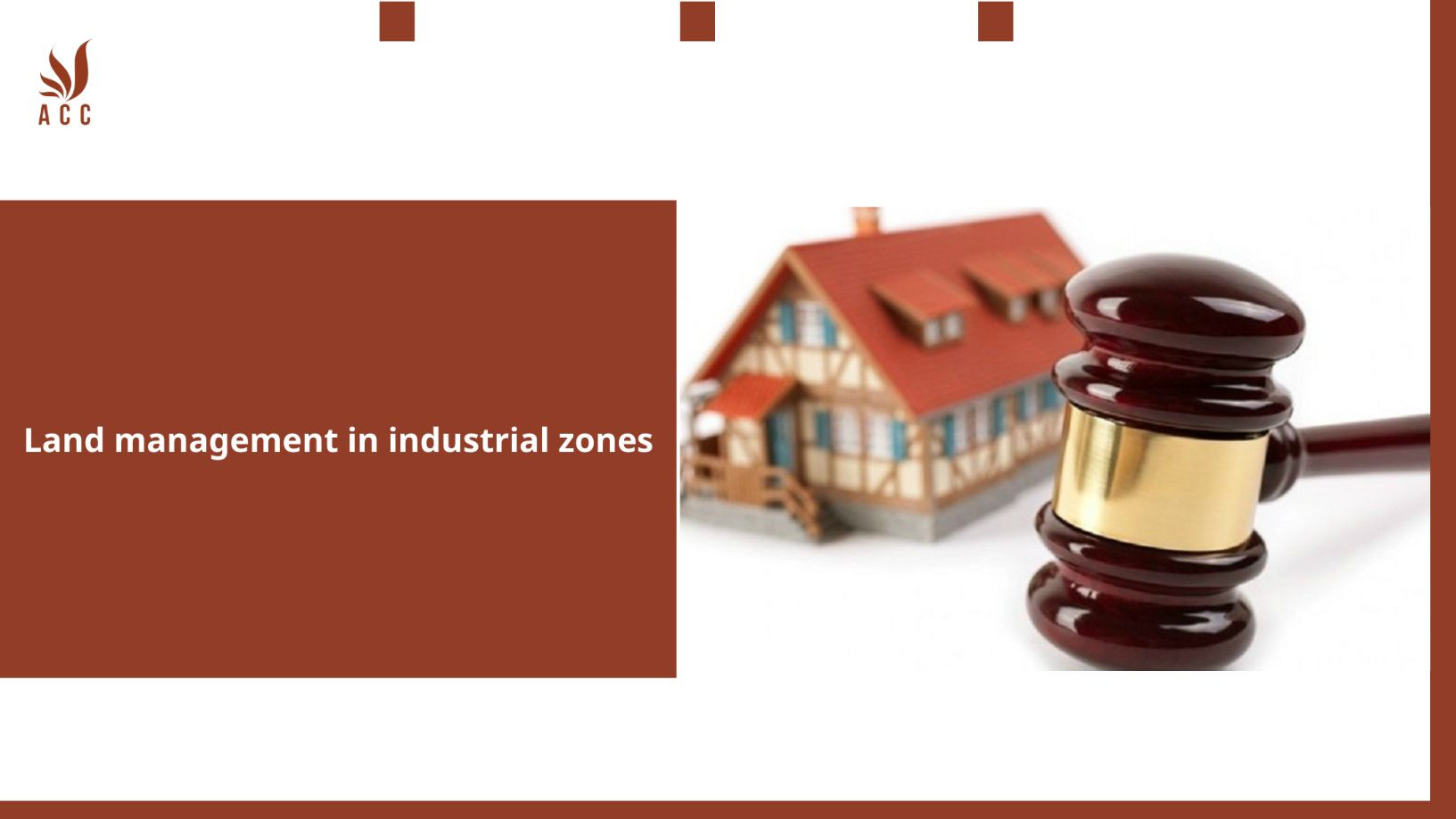Land management in industrial zones is a specialized form of land administration that focuses on planning, developing, and overseeing areas designated for industrial and manufacturing activities. Industrial zones play a crucial role in economic development by providing space for factories, warehouses, logistics centers, and related facilities. Effective land management in industrial zones ensures that land is used efficiently, safely, and in compliance with regulations. Here are key aspects of land management in industrial zones:

1. Zoning and Land Use Planning:
Industrial zones are designated areas with specific land use regulations. Land management involves developing and implementing zoning plans that define permissible industrial activities, building sizes, and infrastructure requirements.
2. Infrastructure Development:
Creating and maintaining essential infrastructure, including roads, utilities, sewage systems, and telecommunications networks, to support industrial operations within the zone.
3. Land Allocation:
Allocating land parcels to businesses or investors for industrial use through leases or land allocation agreements. This process ensures that land is used for its intended purpose.
4. Environmental Regulations:
Enforcing environmental regulations and sustainability practices within industrial zones to minimize pollution, protect natural resources, and maintain ecological balance.
5. Permitting and Approvals:
Managing the permitting process for new industrial projects and ensuring compliance with safety and environmental regulations. This includes construction permits and environmental impact assessments.
6. Infrastructure Maintenance:
Regular maintenance and upgrades of industrial infrastructure to meet the needs of existing and potential businesses. This includes ensuring proper road networks, utilities, and security measures.
7. Safety and Compliance:
Monitoring industrial activities to ensure safety standards are met, employees are protected, and businesses adhere to local, regional, and national regulations.
8. Land Records and Documentation:
Maintaining records of land ownership, lease agreements, property boundaries, and land titles. Clear documentation is essential for legal land transactions.
9. Community Relations:
Engaging with local communities to address concerns, promote responsible industrial development, and create positive relations between the industrial zone and nearby residents.
10. When using ACC Law Firm's land-related services, entrepreneurs will receive
When using ACC Law Firm's land-related services, entrepreneurs will receive expert advice and assistance in navigating various legal aspects of land ownership and transactions. This includes guidance in property acquisitions, leases, zoning regulations, land use planning, and any other land-related legal matters. ACC Law Firm's team of experienced attorneys will provide personalized support to entrepreneurs, ensuring compliance with applicable laws and regulations, protecting property rights, and optimizing the value of their land investments.
11. Q&A
Q1: What is the role of land management in industrial zones, and how does it differ from general land management?
A1: Land management in industrial zones focuses on overseeing land allocated for industrial and manufacturing purposes. It involves specific regulations, zoning, and infrastructure planning tailored to industrial activities, which can differ from general land management practices.
Q2: What are the key functions of land management authorities in industrial zones, and how do they support industrial development?
A2: Land management authorities in industrial zones facilitate land allocation for industrial use, enforce zoning regulations, manage land leases, resolve land-related disputes, and ensure infrastructure and utilities meet the needs of industrial enterprises. Their role is to promote industrial development and investment.
Q3: What challenges can arise in land management within industrial zones, and how are they typically addressed?
A3: Challenges can include infrastructure deficiencies, environmental concerns, land disputes, and the need for efficient land allocation. These are often addressed through coordinated planning, infrastructure development, zoning enforcement, and dispute resolution mechanisms.
Q4: How does effective land management in industrial zones contribute to economic growth, job creation, and sustainable industrial development?
A4: Effective land management in industrial zones helps attract investments, promote job creation, support economic growth, and ensure that industrial activities are conducted responsibly and sustainably. It provides the necessary framework for industrial development within a region.
Nội dung bài viết:






Bình luận